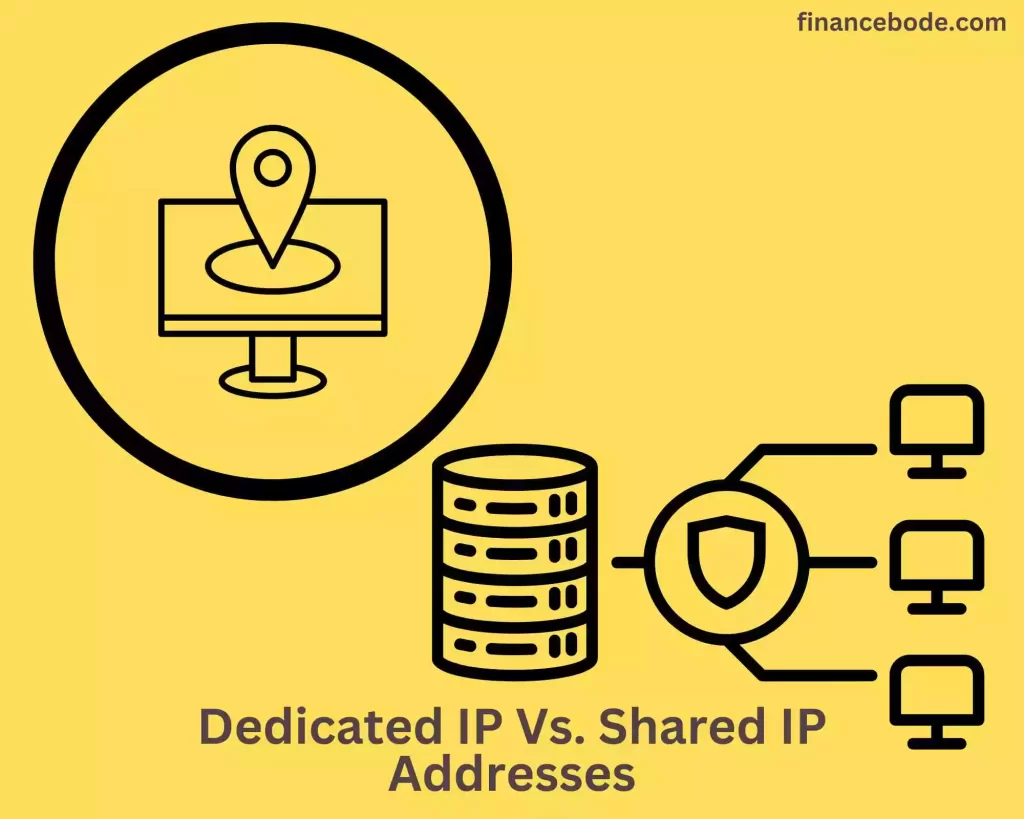Should email marketing be delivered using a dedicated IP address or a shared IP? Indeed very few marketers pay attention to this topic. But this is an essential aspect that decides whether the email you send travels to the Spam or Inbox of the receiver.
Having a solid IP reputation increases email delivery like a prior act that defines one’s reputation. Mailbox providers will examine any email coming from your IP address to verify whether you are a trustworthy sender. Does your message qualify within the recipient’s mailbox?
Because IP reputation is intimately connected to delivery. Therefore, selecting which IP to send bulk emails to is highly crucial.
In this post, I will clarify what a dedicated IP address concept is. What is IP Sharing? At the same time, I shall determine the difference between the two. Through this post, you will have the answer to the issue of whether to send email marketing using a dedicated or shared IP.
First, we need to grasp what an IP address is.
What Is An IP Address?
IP stands for Internet Protocol. This is a set of numbers allocated to a domain on the web. They find their domain names in the digital world—for example, 27.79,211,287.
Thanks to the IP address, when you enter any domain, such as financebode.com, you will be led to the appropriate website without being confused with another website.
What Is A Dedicated IP Address?
Dedicated IP, as the name indicates. Your domain will be issued an IP address that is not shared or shared with any other domain. In other words, you or your business solely utilize a dedicated IP.
Advantages of Dedicated IP
Disadvantages of sending emails using a dedicated IP
What Is A Shared IP Address?
Shared IP addresses are distinct from dedicated IP addresses. Shared IP is used by several persons or organizations (sending emails). This implies that the IP reputation is also shared.
Advantages of sending an email with shared IP
Disadvantages of sending an email with shared IP
On Shared IP, reputation is shared among multiple users. In other words, terrible campaigns might severely affect others on the team. However, this difficulty is fully addressed if you utilize the shared IP of trusted email marketing service providers. For example, Amazon SES, Twilio Sendgrid….etc
The Difference Between Shared IP And Dedicated IP
Choosing the perfect option between shared IP and dedicated IP for your email relies on numerous things. And the first step in finding out whether you should select a dedicated or shared IP is to grasp the precise difference between these two alternatives. Let’s start with some brief words on the term:
- : A shared IP is an IP used by more than one sender, i.e. a group of enterprises.
- : Dedicated IP is the IP utilized by a single sender. Senders must acquire and set up a dedicated IP with their email marketing supplier.
Now let’s look into the elements that should go into picking a dedicated or shared IP.
Price
This element of choice is pretty straightforward. Shared IPs are often less costly than dedicated IPs since your email marketing service provider may split the cost of a shared IP for multiple clients.
Additionally, companies that use a dedicated IP typically have to pay initial setup fees and annual maintenance charges. But you generally don’t make judgments based purely on cost, so let’s move on to the next aspect that will affect your selection.
Maintenance
With a dedicated IP, you need to make sure you’re sending enough emails to keep a high reputation with ISPs. (We’ll discuss more about reputation as a consideration in your selection later.) It might be challenging if you pick a dedicated IP and don’t send many emails or if you don’t send emails regularly. Establish oneself as a reliable, spam-free sender.
This significantly reduces your capacity to deliver; ISPs and online email providers look for a reasonable degree of matching before they allow you to access their subscribers’ inboxes.
However, in the situation of shared IPs, this is not the case. Issue – your email service provider (ESP) may pool emails from numerous senders and preserve IP reputation so you don’t have to worry about sustaining sending volumes.
Reputation
As you surely already know, your sender’s reputation is essential when it comes to deliverability. If you are sending from a beautiful, recognized email server, your email will appear in front of your readers’ eyes. And as we’ve mentioned previously, your email volume is a consideration that plays into the decision to place your email in your recipient’s Inbox.
Other contributing elements are connected to list cleanliness, as assessed by measures like bounce rate, spam trap hits, and SPAM complaint rate.
Senders on a shared IP are pooled together from the point of view of reputation. The reputation of the IP you are using is decided by the email actions of all the persons using that IP.
For that reason, ESPs are frequently proactive about list cleaning by creating entrance requirements and regularly monitoring their servers for senders utilizing bad email marketing strategies or possibly black hats. May impair the ability to transmit to everyone.
If you don’t wholly trust the cleanliness of your postings, maybe you may genuinely profit from the good behaviors of your neighbors on a shared IP. I am not proposing that you monitor your ESP threshold for harmful activity. I am merely pointing out that you are more accountable for your conduct when you utilize a dedicated IP.
Should I Send Email Marketing Using A Shared IP Or A Dedicated IP?
At this point, you have mastered the notion of dedicated IP. What is shared IP? I also clearly differentiate between these two sorts of addresses. Here is my recommendation on which IP to use for email marketing.
When to use dedicated IP addresses?
When should you use a shared IP?
What To Do When You Opt To Utilize A Shared IP Over A Private IP
So let’s pretend you’ve made a choice. What are the next steps? If you are planning to utilize a shared IP, make sure you ask your ESP these two questions:
What is your subscriber entry rule?
These regulations are crucial to know — not just because your IP neighbors have to obey them, but because you have to follow them too!
What is your share of the IP adoption rate?
You may find this down by asking for their Return Path Sender Score, the accepted benchmark for email deliverability. To give you a sense of what’s usual, recent research by Return Path found that for servers with a Sender Score of 91+ (i.e. reputable servers), only 88% of mailboxes arrive.
If you pursue the alternative way and determine that you’re ready for a dedicated IP, chat with your ESP about their services and be prepared to warm up to any new IP numbers. Warming up an IP address is a crucial step towards an exceptional reputation.
The concept is that you want to progressively raise the number of emails sent rather than increasing it by a big amount too rapidly. As a new IP address, your ISP won’t instantly identify you as a “good sender” and may consequently misinterpret your new mails for malicious, impacting your deliverability.
Read more: Warming up an IP address
Conclusion
Choosing between a shared IP address and a dedicated IP address for your email marketing efforts is crucial. While all solutions have perks and cons, it ultimately comes down to your business’s demands, budget, and email marketing objectives. Consider the variables discussed above and talk with your email service provider to make an educated selection that will assist in enhancing your email deliverability and boost company development.
Frequently Asked Questions About
Can I move from a shared IP address to a dedicated IP address?
Yes, most email service providers enable you to migrate from a shared address to a dedicated one. However, this may come with extra expenses.
Can I move from a dedicated IP address to a shared IP address?
Yes, converting from a dedicated IP address to a shared IP address is possible. However, this may not be suggested if you have a large number of emails or want greater personalization.
Can I have many dedicated IP addresses?
Yes, you may have multiple dedicated IP addresses if you have a huge number of emails or desire additional customization. However, this may come with extra expenses.





